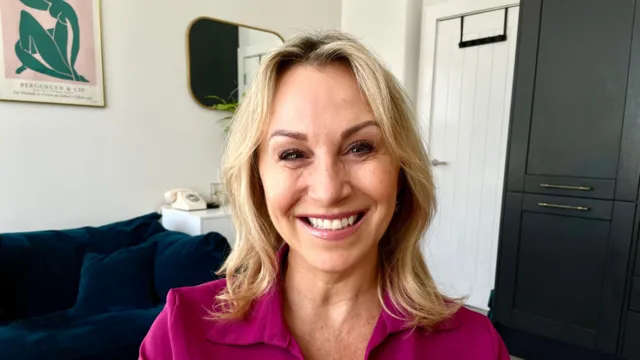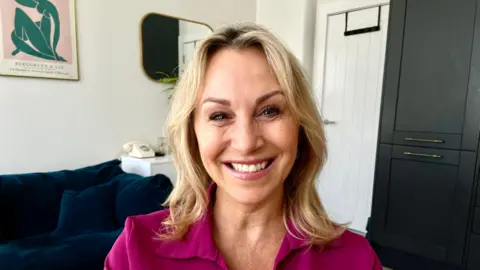‘It should be my choice not to suffer’
A woman with terminal cancer is calling on the government to “urgently” reform assisted dying laws.

 BBC
BBCA Brighton mother with terminal cancer is calling on the government to “urgently” reform assisted dying laws.
Sophie Blake, who was diagnosed with stage four secondary breast cancer in May 2022, says she wants new rules to allow people to medically end their own life to protect families from the anguish of seeing their loved ones suffer “needlessly”.
Assisted dying, where someone who is terminally ill seeks medical help to obtain lethal drugs which they administer themselves, is currently banned in the UK.
A government spokesperson said it would allow Parliament to debate and vote on any legislation brought forward by MPs.
Ms Blake was first diagnosed with cancer in 2020, but it later spread to her lungs, liver and pelvic bone.
She said it was an “overwhelming shock” when told her illness was terminal.
“There’s so many things that go through your mind, everything you’re going to lose, your future that’s being taken away from you… not being here for my daughter,” she said.
The former sports TV presenter is allergic to opioid painkillers and says she worries her condition may one day leave her in excruciating pain, with no legal way of ending her suffering on her own terms.
‘Peaceful death’
Whilst “not scared of dying”, Ms Blake said she feared “more than anything” how her death could impact friends and family, especially her 17-year-old daughter Maya.
“It can be brutal. We all know. So many people have lost family, relatives, partners to cancer,” she said.
Despite her prognosis, the 51-year-old said she wanted to do “something proactive” and help change laws so that people had the right to choose to end their lives.
She said it would be comforting to know that she could have a “peaceful death when the time comes” so that “none of us would suffer”.
Sarah Wootton, chief executive of Dignity in Dying, said UK laws were “well behind the curve”, with her organisation saying around 400 million people around the world have legal access to some form of assisted dying.
“At the moment, people are forced to take dangerous and difficult decisions on their own,” she said, with some “taking matters into their own hands”.
Assisted dying abroad was expensive and unaffordable for many, Ms Wootton said.
“If you think it’s morally wrong, then you shouldn’t take that choice. But other people believe they should have that choice available to them,” she added.
- If you have been affected by any of the issues raised in this story you can visit the BBC Action Line.
A Department for Health and Social Care spokesperson said: “This government has made clear that time will be provided for a proper debate and vote on any legislation brought forward.”
Health Secretary Wes Streeting recently said the “time had come” for formal discussions on assisted dying.
In July, a bill was introduced to the House of Lords which would allow terminally ill adults with six months or less to live to get medical help to end their lives if they meet strict eligibility criteria with the approval of two doctors and the High Court.
However, private members’ bills introduced in the Lords rarely become law.
Some politicians and groups oppose legally permitting assisted dying.
Speaking to the BBC Radio 4’s Today programme, former Paralympian Baroness Tanni Grey-Thompson warned everyone needed to “understand the implications” of it becoming law.
Despite safeguards, she claimed legislation could still be “open to a huge amount of abuse”.
Dr Gordon Macdonald, chief executive of the campaign group Care Not Killing, called assisted dying a “dangerous and ideological policy”.
He said the UK should instead fix its “broken and patchy palliative care system so everyone can have a dignified death”.
More than two thirds of Britons (69%) think the law should be changed to allow someone to assist in the suicide of another who is suffering from a terminal illness, according to YouGov research from 2024.








